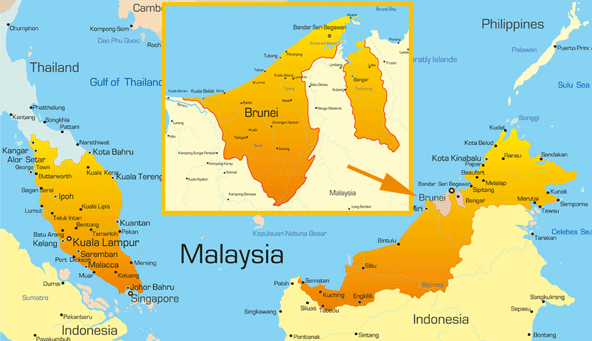The Death Cult. Perhaps Tony Abbott's most memorable description of
Da'esh (also known as Islamic State ISIS, and ISIL). An appropriate description for an organisation whose volunteers and recruits revel in posting on social media photos of themselves holding up decapitated heads. As if they are playing out their own version of Abu Ghraib.
Da'esh is a group whose brutality has even led them to be condemned by al-Qaeda, the terror outfit from which they broke away. Like
al-Qaeda, Da'esh has had no hesitation in murdering
Shia Muslims, Kurdish Muslims as well as religious minorities in Iraq and Syria. But unlike
al-Qaeda,
Da'esh wants to be seen establishing a fully functioning state, a place to which believers in its novel form of Islam may wish to migrate and build a new life.
Such a state cannot be established in territory populated with bearded blokes holding up index fingers and/or decapitated heads, deceased "martyrs" and/or
kuffar (non-believers) and teenage girls in burqas boasting about luxury cars.
Which makes Dr Tareq Kamleh's 15-minute video perhaps the most effective piece of IS propaganda to date. Kamleh comes across as calm, softly spoken, competent. He uses minimal Arabic religious terms. His face isn't covered with a bushy unkempt beard (the trademark of many a firebrand). He looks like a reformed ladies' man, the kind of well-groomed guy who would impress many a parent were he to come and ask for their daughter's hand or appear at their front door to take her on a date.
Dr Kamleh isn't speaking from a war zone. Far from living in a death cult, he's in a hospital bringing new life into the new caliphate. The video almost looks like an invitation from a prospective employer to work.
Come and join us. It's nice here. Lots of facilities. All we need is professional people like yourself. I'll see you soon.
The response from political leaders, pundits and religious spokespersons will be predictable. Conservative pundits will move slowly toward their preferred "I told you so" position. They will complain that allegedly chronic political correctness is stopping them from warning Australians about the desperate need to answer "the Muslim question".
Prominent self-appointed spokesmen (and I use the gendered sense deliberately) will remind us that Muslims are victims, the subject of discrimination, vilification, increased surveillance and victimisation.
Seriously, in what way was this young doctor who allegedly spent much of his spare time drinking and sleeping around (as if he was the only young Australian professional to do so) the subject of victimisation? Like any other young doctor working long shifts in regional hospitals hundreds of miles from home, Dr Kamleh would have found plenty to entertain himself in Mackay or Perth.
This young doctor was hardly a victim. Yet the Muslim spokesmen will find some of their message – at least as far as vilification is concerned – confirmed by a fair few politicians. The Prime Minister will repeat his talk of draining extremist swamps, an image that reminds this writer of Saddam Hussein's 1993 draining the marshes to destroy the lives of Iraqi
Shia Arabs.
And how ridiculous did South Australian Premier Jay Weatherill sound when he told
The Australian that he was
absolutely" concerned about doctors joining IS and that "We will assist the commonwealth in identifying people that fall into this category and to make sure they don't infect other South Australians with their ideology.
And how exactly will he do this? Will the University of Adelaide Medical School run deradicalisation courses? Will Federal Police be sent to watch over paediatricians at work? Does it really boil down to ideology?
What I am about to write may be a bit difficult for Muslim spokespersons, pundits and politicians to stomach. The fact is that we really don't have much of an idea why young people with plenty of opportunities head off to Raqqa or other territory controlled by
Da'esh. We have also put very little money into researching why a tiny group of people take that path.
Let's just say there are 200 Australian Muslims in IS territory at the moment. There are about 400,000 Muslims in Australia. So a grand total of 0.05 per cent of Muslims have joined the "Death Cult". Now Australia's population is just over 23 million. By my calculations, IS recruits are 0.00087 per cent. That's a rather shallow extremist swamp to drain.
But let's just say there is a massive risk of doctors, lawyers, accountants etc lining up to fly to the Islamic Republic of Da'eshistan. How will we find out what their motivation is? By waiting until they appear on a well-produced video, condemning them for joining the biggest threat to civilisation since World War II (as Julie Bishop recently described IS) and cancelling their passports so they can never return and we can never find out why they left Australia and then left IS?
If we are going to defeat IS in Australia (or rather, if it doesn't implode due to lack of demand among local Muslims), our solutions must be based on solid research. By that, I don't mean speculation or theorising. I mean talking to Muslims on the ground. It is a task self-appointed Muslim leaders have never done. And due to lack of funding, academics have found it hard to do.
If the threat from home-grown Islamist terrorism is as big as we are left to believe, let us address it on the basis of facts and evidence.
In conclusion, why did Dr Tareq Kamleh leave behind the alcohol and the girlfriends and the surf? I have no idea. And unless your name is Tareq Kamleh and you are sitting in Raqqa, chances are you don't either.
Irfan Yusuf is a PhD candidate at the Alfred Deakin Research Institute for Citizenship and Globalisation at Deakin University. This article was first published in the Canberra Times on 29 April 2015.





























